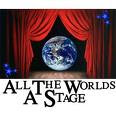
Robert Frost was born in San Francisco on March 26, 1874. He moved to New England at the age of eleven and became interested in reading and writing poetry during his high school years in Lawrence, Massachusetts. He was enrolled at Dartmouth College in 1892, and later at Harvard, though he never earned a formal degree. Frost drifted through a string of occupations after leaving school, working as a teacher, cobbler, and editor of the Lawrence Sentinel. His first professional poem, "My Butterfly," was published on November 8, 1894, in the New York newspaper The Independent. In 1895, Frost married Elinor Miriam White, who became a major inspiration in his poetry until her death in 1938. The couple moved to England in 1912, after their New Hampshire farm failed, and it was abroad that Frost met and was influenced by such contemporary British poets as Edward Thomas, Rupert Brooke, and Robert Graves. While in England, Frost also established a friendship with the poet Ezra Pound, who helped to promote and publish his work.
Robert Frost is my favourite poet as he had many experiences in life when he changed jobs many times. He also had the help of other contemporary poets. In a 1970 review of The Poetry of Robert Frost, the poet Daniel Hoffman describes Frost's early work as "the Puritan ethic turned astonishingly lyrical and enabled to say out loud the sources of its own delight in the world." Robert Frost expresses his feelings in some of the poems he wrote. The way he writes makes it seem as if we are not reading the poem, but the poem is telling about itself. He also repeats some words to make it some more dramatic. The flow of his poems are also very consistent. There is also a very good use of personifications in his poems. Three of my most favourite poems by him are The Road Not Taken, Bond and Free and Going for Water. Some of his poems actually tell a story on their own, with dialogues that rhyme. In my opinion, he does not limit his boundaries when it comes to writing poems, he has wrote many different types of poems in different ways. Furthermore, many of the words used in his poems are simple and easy to understand, but when stringed together, they form a more complex poem.
Bibliography: http://poets.org/poet.php/prmPID/192

